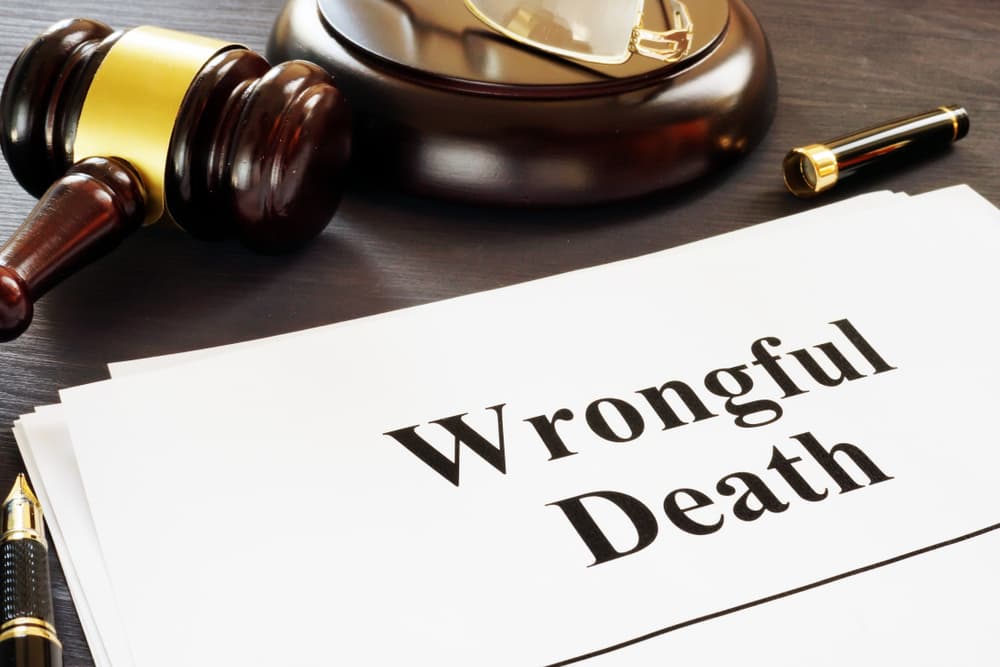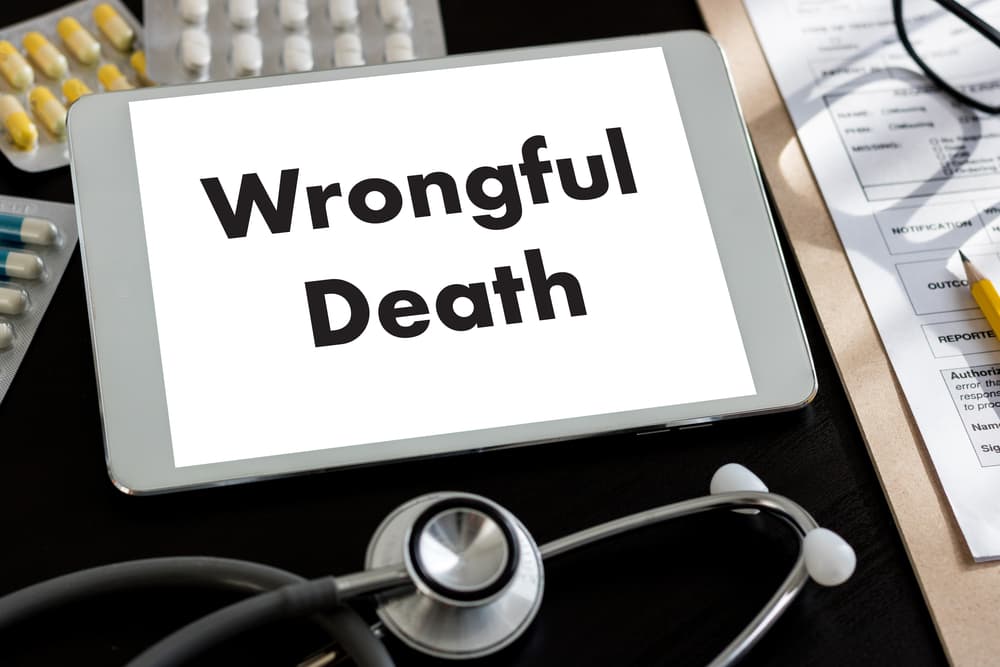Wrongful death lawsuits are complex and emotionally charged legal battles that arise when a loved one dies due to someone else’s negligence or intentional harm. When such cases are resolved either through settlement or trial award, the next question often arises: how are wrongful death settlements paid?
When you have a wrongful death lawyer, they can explain what you can expect regarding your settlement and obtaining your money. A skilled attorney plays a significant role in handling wrongful death claims and ensuring you get the monetary recovery you need following a devastating loss.
The Basics of Wrongful Death Claims

Every state has its definition of what constitutes a wrongful death, but generally, a wrongful death is a death resulting from another party’s negligent or intentional act or omission. Often, these deaths are completely unexpected.
A wrongful death claim is a civil lawsuit by the survivors of an individual who has died at the hands of another. The primary purpose of a wrongful death lawsuit is to provide compensation for family members’ losses, including economic damages, non-economic damages, and punitive damages.
What Situations Give Rise to Wrongful Death Claims?
Numerous situations can result in a wrongful death. These deaths are usually avoidable if there has been no misconduct by the responsible party.
Some of the incidents that more frequently result in fatalities include:
- Car accidents
- Truck crashes
- Motorcycle accidents
- Pedestrian accidents
- Bicycle collisions
- Medical malpractice
- Slip and falls
Depending on the severity of the situation, victims may die instantly, or they may eventually succumb to their injuries. Some recoverable damages can depend on this detail.
If your loved one passes away as a result of another’s wrongdoing, you may have a valid claim for wrongful death. Discuss your situation with a knowledgeable wrongful death lawyer.
Who Can File a Wrongful Death Lawsuit?
Not just anyone can file a claim to recover compensation after a death. Instead, you must turn to your state’s laws concerning wrongful death.
In some states, like Florida, only the victim’s personal representative can file the claim. A personal representative, also called an executor, is responsible for everything concerning a person’s estate after their passing. They handle everything from asset and property distribution to filing lawsuits. A personal representative can file a legal claim to benefit the victim’s family and dependents.
Other states allow the victim’s family members to file a wrongful death claim. Still, only certain individuals, including the victim’s spouse, children, parents, and siblings, can file the lawsuit. In some states, the victim’s family can choose whether they want a family member to file the claim or the personal representative.
A wrongful death attorney can clarify your state’s laws and help you choose a party to file a lawsuit if necessary.
Who’s Entitled to Benefit from a Wrongful Death Claim?
Sometimes, there’s confusion about who can benefit from a wrongful death claim. Regardless of who files the claim, whether a family member or a personal representative, the party filing the claim does so on behalf of family members and dependents.
Who’s entitled to benefit from a wrongful death claim ultimately depends on the circumstances and state law. For example, if a victim has a spouse and children, they can all benefit from the claim. But if the victim was unmarried, perhaps their parents and/or siblings would receive compensation. Financial dependents can also benefit from the claim, whether or not they are immediate family.
A wrongful death lawyer can address your concerns and determine who will be eligible to receive part of the settlement or award.
Liability Determines Financial Responsibility

Liability is one of the most important parts of a wrongful death claim. You must determine who caused the victim’s death to know who you can pursue compensation from.
In general, individuals who directly (and sometimes indirectly) caused the victim’s death will be financially responsible. Based on the specifics of the incident and death, parties that can be liable for wrongful death include, but are not limited to:
- Drivers
- A driver’s employer
- A vehicle owner
- Healthcare providers, including doctors and nurses
- Landlords and tenants
- Hospitals and care facilities
- Pharmacists
- Repair and maintenance companies
- Governmental entities
- Product designers and manufacturers
- Cargo loaders
In some cases, only one party may be solely responsible for a victim’s death, but in others, several parties may share liability. Fault can be challenging to determine. A wrongful death attorney can thoroughly investigate the situation and figure out who you can hold accountable for your loved one’s death.
Establishing Liability for Wrongful Death
It is not enough to point the finger at the responsible party; you must establish their liability. Wrongful death situations can result from intentional actions or negligence, although negligence is most often to blame.
To prove a party was negligent, you must satisfy the elements of negligence, including duty, breach, causation, and damages. You must show:
- The defendant owed your loved one a duty of care
- The defendant’s actions or omissions resulted in a breach of duty
- The defendant’s wrongdoing was the cause of your loved one’s death
- You suffered damages as a result, including tangible and intangible losses
Proving fault is often made possible by solid evidence. Evidence that may aid in establishing liability for a wrongful death includes medical records, surveillance footage, and police reports.
Wrongful death attorneys are highly experienced in determining who was at fault for death and proving their liability. You can rely on your lawyer to handle this aspect of your case, among many others, to get you the desired result.
Compensation Available for Wrongful Death Claims
When you file a wrongful death lawsuit, you can pursue compensation for the losses and expenses resulting from the untimely death of your loved one. These damages can represent your economic and non-economic losses, which can include:
- Funeral and burial costs
- Medical expenses
- Pain and suffering
- Loss of consortium
- Loss of income and benefits
Damages you may be entitled to receive depend on the specifics of your loved one’s death and your losses, as well as state law.
Additionally, based on the circumstances, you could also have the opportunity to obtain punitive damages. Punitive damages serve as punishment for defendants who act maliciously, intentionally, or grossly negligent. Each state has its requirements for defendant wrongdoing that constitutes punitive damages.
Is there an Average Settlement for Wrongful Death Cases?
It’s common to want to know what you can expect as far as compensation for your wrongful death claim, especially if you’re faced with significant financial burdens. Because of the nature of wrongful death cases, there is no average you can anticipate receiving.
Every case is unique, including the victim, circumstances surrounding their death, and their families. Therefore, it’s not possible to say what an “average” wrongful death settlement will be, as it depends on several details.
When you discuss your case with a wrongful death lawyer, you can inquire about compensation and what you can receive based on the facts of your case.
Determining the Value of a Wrongful Death Claim
Examining the situation is necessary when determining how much your wrongful death case is worth. Various factors are influential in the value of your case, including, but not limited to:
- Your loved one’s age, health, education, and occupation
- Your loved one’s income and benefits
- The total medical expenses incurred before their death
- Your loved one’s earning capacity
- The ages and needs of your loved one’s dependents
Calculating damages can be particularly challenging in wrongful death claims, especially for non-economic damages like pain and suffering and loss of consortium. A wrongful death lawyer can carefully evaluate your case to adequately assign a monetary value to your case and pursue just compensation on your behalf.
Who Pays: The Liable Party or the Insurance Company?
Responsibility for paying damages depends on the circumstances.

If an insured party caused your loved one’s death, the insurance company may pay some wrongful death damages. For example, if your loved one was killed in an auto collision, the car insurance company may provide compensation. However, it’s important to note that policy limits play a big part in available compensation. For that reason, a lawsuit is often necessary to pursue just financial recovery.
If the liable party was not insured at the time of your loved one’s death, or the cause of death does not involve insurance, the responsible party will need to pay your damages.
Determining who is financially responsible for a wrongful death claim can be tricky. Your wrongful death attorney can provide direction so you know what to expect.
Settlement vs. Trial Awards
When it comes to getting your money, you can receive compensation through a settlement or an award at trial.
Most wrongful death cases are settled out of court rather than going to trial. A settlement is an agreement between the parties where the defendant (or their insurance company) agrees to pay the plaintiff a certain amount to resolve the case. Settlements can be advantageous because they offer a quicker resolution and avoid the uncertainties of trial.
However, reaching a fair settlement often requires careful negotiation and legal advocacy, but even so, not all negotiations yield favorable results. When you’re unable to get adequate compensation through a settlement, you can take your case to trial. At trial, if the judge or jury determines you’re entitled to receive compensation, this will be considered an award rather than a settlement.
The primary difference between settlements and trial awards is that, in settlement negotiations, your lawyer is in control. On the contrary, in court, the judge or jury controls the fate of your case.
Wrongful Death Payment Structures
Once a settlement is reached in your wrongful death case, you’ll need to work out a payment structure to get your money. The structure that works best varies based on the circumstances, including whether you’re getting compensation from an insurance company or the liable party directly.
Lump-Sum Payment
A common structure for wrongful death settlements is a lump-sum payment. It means the defendant or their insurance company pays the agreed-upon settlement amount in one payment. The lump sum is typically negotiated to cover all aspects of the damages claimed.
There are notable advantages to this payment structure, including:
- Immediate access: The beneficiaries receive the full amount at once, which can be beneficial for addressing immediate financial needs.
- Simplicity: Managing one large payment can be simpler than handling multiple payments.
Lump sums are the best choice when available. Once you receive your payment, the wrongful death claim is resolved.
Structured Settlement
A structured settlement involves payments made over a period of time rather than a single payment. It can be arranged to provide periodic payments, which may be monthly, annually, or in another agreed-upon schedule.
Structured settlements can provide some financial stability, as they provide a steady stream of income, which can benefit long-term financial security. However, when you receive multiple settlement payments, there is less immediate cash. Beneficiaries do not have access to the entire settlement amount, which may be a disadvantage in urgent financial situations.
Combination of Lump Sum and Structured Payments
In some cases, you may have the opportunity to set up a combination of a lump sum payment and structure payments. For instance, a portion of the settlement may be paid upfront to cover immediate expenses, while the remaining amount is distributed through structured payments.
While this payment structure offers some flexibility and a customized solution, it can be more complex and require careful planning.
A Wrongful Death Attorney Can Get You the Settlement You Deserve

Losing a loved one due to someone else's negligence is an incredibly difficult and painful experience. In addition to the emotional toll, there are also financial burdens to consider. Wrongful death settlements can provide much-needed compensation for surviving family members and loved ones. That's where a wrongful death attorney can help.
Understanding how these settlements are paid is essential for making informed decisions. By working closely with a personal injury attorney, you can ensure you get the settlement you deserve and receive your payments properly and timely.
We proudly serve Hillsborough County, Pinellas County, Pasco County, Polk County, and its surrounding areas in Florida:
Apex Law Firm - Tampa Office
412 E Madison St Suite 1206, Tampa, FL 33602
(813) 444-5212



